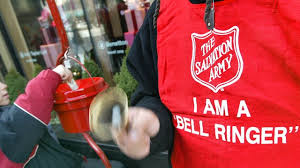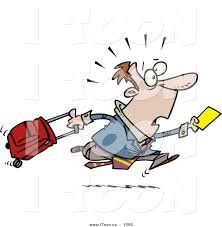We don’t have enough money! We don’t have enough marketing and research! We don’t have enough people!
Surprise! In more than forty years of being inside tall stations and short stations, successful stations and gonna-be successful stations, I’ve never heard anyone say they had enough stuff!
Every station needs more something! But every station has the same amount of something, too!
Time.
Rather than focusing on what we don’t have perhaps we should consider focusing on making the most of what we do have.
I’ve seen some program directors spend so much time on the on-line forums and Facebook during their workday that I wonder when they have time to actually program their stations. (Answer: They don’t). I’ve seen organizations spend so much time in meetings that they no longer have time to get anything done.
While obviously some meetings are important, Robert Pozen, productivity expert and contributor to the Wall Street Journal, recently wrote that meetings are “the bane of corporate life.” He insists that companies are scheduling far too many of them, failing to maximize that wasted time and – in effect – ignoring the “real” work of getting things done.
In short, meetings are an excellent way to showcase how busy you are, but are a horrific way to let actual productivity slide.
My talented friends at NGEN share their creativity on wasting time!
https://www.youtube.com/watch?v=i8uqqmJKLv0&list=UUj2caSdz7Y2QW4iIq9gtNyw
Here’s a suggestion on how to make better use of your time, from Jack Kinder in “Breakfast with Ted”:
“At the end of each day, …sit down and identify the many things to be done the following day. On a second piece of paper, …list in the order of their priority.”
The next day start at the top of your list and scratch out tasks completed. Moving from top to bottom, you’ll seldom mark out all of them. However, you will form the habit of focusing on the highest priorities!
“Don’t get so busy dribbling that you forget we’re supposed to score.” Phil Jackson

 Every Christmas for the last several years I’ve thrown a few coins into the Salvation Army bucket down the street at the Piggly Wiggly. But not this year. Nope. They’ve changed their bell ringer. The guy standing outside the store ringing the bell is going to be different this season, so I’ve decided not to give.
Every Christmas for the last several years I’ve thrown a few coins into the Salvation Army bucket down the street at the Piggly Wiggly. But not this year. Nope. They’ve changed their bell ringer. The guy standing outside the store ringing the bell is going to be different this season, so I’ve decided not to give.
 My 5:25 flight out of Nashville was delayed until 6:30, according to the e-mail. Okay, I have more time for my meetings and can head out later than expected.
My 5:25 flight out of Nashville was delayed until 6:30, according to the e-mail. Okay, I have more time for my meetings and can head out later than expected. Take a walk through
Take a walk through